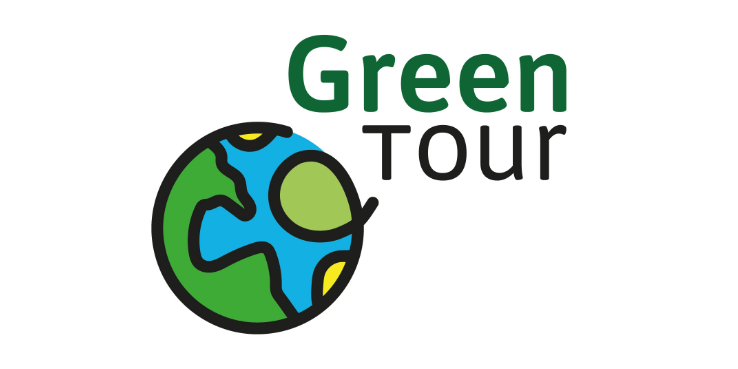Green Entrepreneurship through Sustainable Eco-Tourism
BACKGROUND OF THE PROJECT:
GreenTour: “Green Entrepreneurship through Sustainable Eco-Tourism” is a 2-year Erasmus+ cooperation partnership in the field of Youth involving 6 participating organisations from 5 different countries (France, Spain, Italy, the Netherlands and Greece), working together to raise awareness of the possibilities within sustainable eco-tourism for green entrepreneurship. The project’s main objective is to show young people the potential for sustainable entrepreneurship as a method of both economic growth in rural areas, as well as a key factor in the fight against climate change by promoting more sustainable tourism and a greener perspective when exploring new places.
PROJECT OBJECTIVES & RESULTS:
During the 2 years of project implementation, GreenTour aims to develop the following results:
- Project Result 1: Multilingual and Multilevel Project Website – available in English, French, Spanish, Italian, Dutch and Greek.
- Project Result 2: Eco-Tourism Competency Framework for Youth Workers and “Eco-Tourers” – A customized Competency Framework showing the key capabilities necessary to embark on an eco-tourism green enterprise, designed specifically for youth workers and potential “Eco-Tourers”, young people in areas with high eco-tourism potential, available in all project languages (EN/FR/ES/IT/NL/EL).
- Project Result 3: GreenTour Online Course – A cutting edge online course based on the findings and knowledge developed in GreenTour’s Competency Framework, designed to provide potential “Eco-Tourers” willing to improve their capabilities with an interactive upskilling experience, offering the chance to learn the keys to launching and running and effective green enteprise through sustainable eco-tourism, available in all project languages (EN/FR/ES/IT/NL/EL).
- Project Result 4: GreenTour Handbook – A summarized Handbook compiling points of interest of the previous project results, as well as useful tips and resources, intended to serve as an easily accessible guide filled with strategies, good practices and training methodologies for the implementation of green entrepreneurship opportunities and eco-tourism activities in rural and semi-rural areas, available in all project languages (EN/FR/ES/IT/NL/EL).
- Project Result 5: Capacity-Building Toolkit for Youth Exchange and Youth Exchange in Guadeloupe – Capacity-Building Toolkit to complement the project’s Handbook and assist in implementing the project’s innovative 1-week Eco-Tourism Youth Exchange in Guadeloupe, where young people will come together to learn and immerse themselves in an ideal green entrepreneurship location, participating in learning activities and open discussions on eco-tourism, green entrepreneurship and its role in the fight against climate change.
- Project Result 6: Final Project Conference in Spain – to disseminate the project and its developed results among young people and youth workers, promoting the values and knowledge acquired during the implementation period and encouraging participants to embrace eco-tourism and green entrepreneurship as the new wave of green tourism.
TARGET GROUPS
Initial target groups for dissemination activities inside the project consortium will comprise the following:
- Young People between 16-30 in rural and semi-rural areas;
- Youth Leaders and Youth Workers;
- Volunteers and Teachers/Trainers involved in Youth Work or education;
- Potential “Eco-Tourers” and other interested stakeholders interested in being involved in green entrepreneurship and eco-tourism.
- Additional target groups will be identified and targeted alongside the project implementation and any other interested parties can also benefit from the freely accessible results and outputs of GreenTour.
PARTNERSHIP
P1) Coordinator) Coopérative d’Initiative Jeunes Entrepreneur.e.s – FRANCE
P2) IDEA MOVES – SPAIN
P3) Stichting Social DNA – THE NETHERLANDS
P4) Polygonal– ITALY
P5) Innovation Hive – GREECE
P6) SMARTUP N.B. SYSTEMATIC MANAGEMENT S.L. – SPAIN


